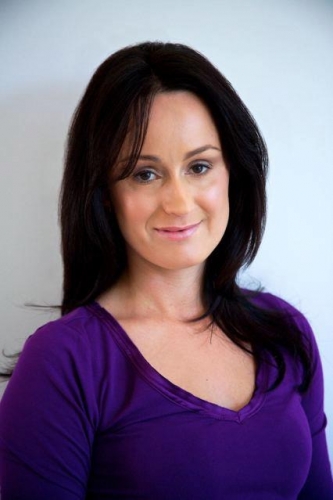Waterbirth is now banned at many maternity hospitals due to government guidelines that detail an 'unacceptable risk' of COVID-19 transmission. It's a controversial move that aims to protect healthcare workers, but at what cost to labouring women?
The Australian College of Midwives says the 'current evidence does not support discontinuing the use of water in labour or of water immersion. This is especially true if the labouring woman is not suspected as having contracted COVID-19.'
Subscribe for FREE to the HealthTimes magazine
Melbourne's Royal Women's Hospital (RWH) is one maternity hospital following protocol with water immersions during labour and birth temporarily ceased due to the recent government guidelines.
In a statement, RWH reports, 'We know this will be disappointing to some women who are due to birth with us and we are very sorry that this option is not available right now. We will review this regularly and hope to recommence water births as soon as possible.'
The Australian College of Midwives' Midwifery Advisor Dr Megan Cooper, whose focus of study centred around water immersion, says denying women access to the shower is one of the worst decisions she has seen.
"It certainly makes you question whether there's an ulterior motive here.
"Scaremongering and removing a completely safe, natural method of pain relief will mean more women turn to pharmacological options which for many women, is completely unnecessary.
"ACM supports recommendations that have been implemented to slow and stop the spread of COVID-19, but this new recommendation is nonsensical.
"We are now denying women an effective option of pain relief and the opportunity to achieve a normal, physiological birth that is a positive and satisfying experience, for no evidence-based reason."
The ACM is calling for all hospitals to continue to provide water immersion and showering for labouring women, reporting that:
• COVID-19 is not a waterborne virus; it is transmitted through the air or from surfaces via droplets (due to coughing, sneezing, breathing). The act of immersing in warm water may actually reduce the risk of transmission.
• A watery environment dilutes any potential risk of respiratory droplet and/or faecal contamination also, while COVID-19 may be found in faeces, there is currently no evidence of faecal-oral transmission.
• Water has the effect of diluting any virus particles that may be present, providing some level of protection against transmission, particularly when compared with land birth.
• The physical barrier offered by the bath assists with social distancing between the woman and those who are with her, including midwives and support people.
• Women who give birth in water commonly receive their baby and gently guide their baby to the surface themselves thereby reducing contact between the woman and baby, and midwives (unless, of course, there is a need to intervene).
• Birth pool cleaning protocols are already stringent and adhered to after every episode of water immersion.
Dr Alex Polyakov, senior obstetrician-gynaecologist and fertility specialist, practising in Melbourne, says the guidelines are an important measure to protect health care workers from COVID-19.
The Department of Health and Human Services has taken this decision because personal protective equipment (PPE) is not waterproof, explains Dr Polyakov.
"The masks are not waterproof. The gowns are water-resistant, but they are not waterproof."
The steam created by the birthing pool may also pose a risk to those attending the birth.
"There is a high chance of transmission if there is steam in the air, as that may carry the virus and it can penetrate the PPE and transfer to the body – the face, the eyes.
"You can see that this is very different to normal humidity – and this is what PPE is designed for. It's designed for normal airflow."
Women can still shower during labour, but they cannot give birth in the shower, says Dr Polyakov.
"The steam from the water creates the problem, as it stays in the air."
Aimee Sing, a birth doula and co-ordinator for Homebirth Australia, argues that taking a natural pain relief option out of the hospital setting encourages women to accept pharmacological pain relief.
"Water immersion during labour and birth has been reported to reduce pain, higher satisfaction rate with the birth experience, lessen medication use and lower rates of induction and augmentation.
"Epidurals are known to slow labour, increase the risks of instrumental birth and caesarean sections, affect newborn alertness and mother-baby bonding and generally increase risk and morbidity for both mothers and babies," says Ms Sing.
Homebirth Australia is witnessing a steep rise in the number of women choosing home birth, not only because of concerns around COVID-19 infection risk within hospitals, but also restrictions around waterbirth and birth support people, explains Ms Sing.
"Most of these women have switched to homebirth to access waterbirth options as they are steadily being removed from various hospitals.
"One of the women I'm currently supporting is very concerned and distressed by restrictions around waterbirth.
"She has spent weeks deliberating over what to do, stressed that her birth options are being removed from her, and trying to work out a way forward that feels right for her and her baby.
"The waterbirth restrictions are causing her to consider switching her place of birth and care provider entirely, to birth at home with a privately practising midwife."
The high cost of homebirth and the stress of changing a birth plan at short notice are also problematic.
"In most instances, homebirth is not publicly funded, costing upwards of $3,000 per birth!
"Pregnancy and birth are also highly emotional and vulnerable times in a woman's life, and this change in the plans and preparations required for birth can be a huge stressor.
"Consequently, the decision to change the place of birth can hold enormous financial, emotional, psychological and psychosocial implications for these women and their families."













